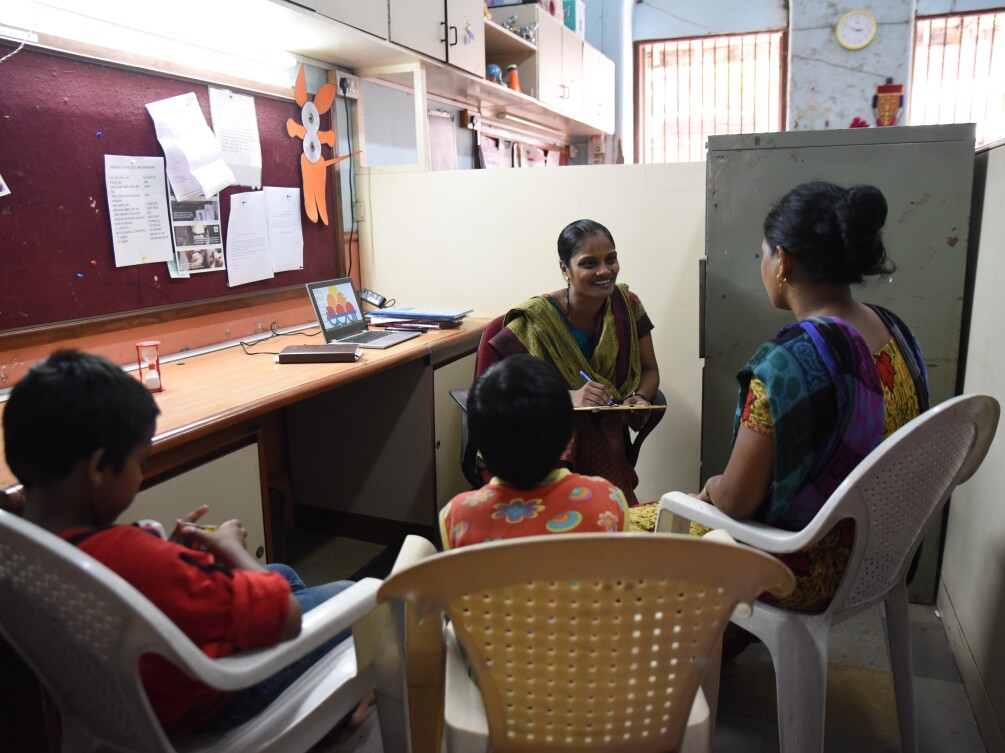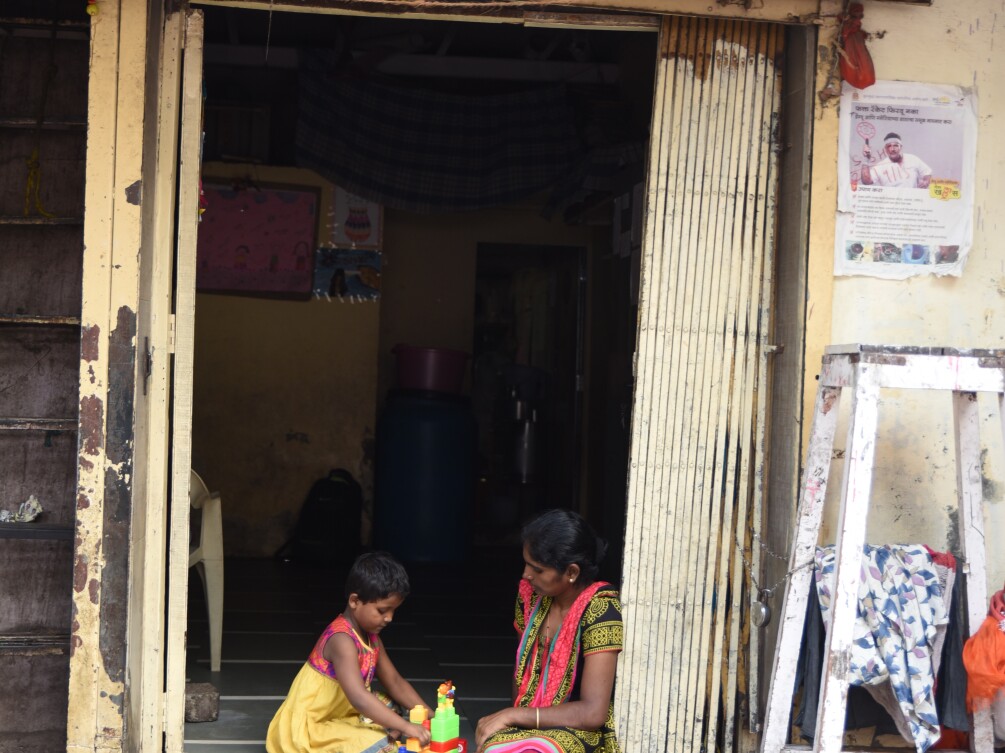Photo essay submitted by Prerana
Photo Credit: Kaustubh Gokhale
There are few topics as taboo as sex work. Yet, this taboo has perpetuated a culture of silence that has enabled the sex trade to grow across South Asia. The Ministry of Women and Children Development of India estimates there are over 3 million female commercial sex workers in India alone, of which an estimated 40% are children. Already marginalized and severely exploited, these women and children are at increased risk of HIV infection with few resources available to prevent or treat infection.
Some 100,000 to 200,000 commercial sex workers live in the city of Mumbai. Stigma, discrimination and lack of access to information and health care facilities have allowed HIV to spread in the city’s brothels, threatening the health of the commercial sex workers and their children. In the absence of support systems, the children in these communities are left unattended and exposed to unsafe circumstances, often falling victim to sexual assault by sex traders and customers.
In the midst of Kamathipura and Falkland Road, the notorious red light district of Mumbai, exists Prerana , an organization dedicated to ending intergenerational prostitution and advocating for the rights of commercial sex workers and their children. Prerana uses a holistic approach to provide mothers and children with the knowledge and resources to make positive choices for themselves – instilling hope that a better future exists and supporting them as they walk up the path that leads to it. To make that healthier future more attainable from day to night, Prerana founded the world’s first night crèches (child care centers), one of the few safe havens available to the children of Kamathipura and Falkland Road once the sun sets.

Every mother wants the same for her children – a life of dignity, health and opportunity. Prerana identifies children of the red light areas who are affected by HIV and AIDS and provides individual and social support to them. They refer them to a wide spectrum of services and address the issues of violence, abuse and neglect they may be exposed to.
Kaustubh V.Gokhale

Arbaz, age 13, is one of the many children who frequent Prerana’s night crèches. “I did not feel safe, neither inside the brothel nor on the street where I slept,” he says. “Some of my friends just disappeared and were never seen again. Some were diagnosed HIV positive. Others lost their mothers at an early age. It was a scary world before I settled into Prerana’s night care center. There I could finally experience safety and happiness.” At Prerana, Arbaz can learn and play in a safe environment.
Kaustubh V.Gokhale

Rupa is one among the thousands of young women who have been sold and resold into the sex trade. “Life is very unfair. I live in a locality which is not a neighborhood. I live in a room which is not my home. I have a child who has no father. I am in a society where I have no identity,” she reflected. When Rupa became pregnant, she also learned of her HIV positive status. During this time, Prerana intervened to make motherhood a more positive and safe experience for Rupa. As a result of timely and professional intervention, Rupa’s baby was born HIV negative.
Kaustubh V.Gokhale

Rupa’s daughter, now four years old, enjoys being in Prerana’s night care and day care centers. With Prerana by her side and able to look after her daughter, Rupa is able to attend to her own health. Aside from improving her own well-being, Rupa fights stigma and discrimination in her community by attending Prerana’s regular community support groups.
Kaustubh V.Gokhale

Nandita, now 37 years old, was trafficked and sold into the sex trade at 16 years old. Four years ago she disclosed her HIV positive status to a social worker at Prerana who was able to quickly connect her to treatment options. Now on HIV treatment, Nandita is a regular member of the HIV positive support group Prerana facilitates.
Kaustubh V.Gokhale

As Nandita works to further her own knowledge, she ensures that her daughter attends school regularly (seen here) and finishes her days at the Prerana night care center. She believes that “an educated girl can change the world and claim her rights.” Like Rupa and Nandita, Salima is a commercial sex worker and HIV positive. She is also a mother of two boys. Salima seeks Prerana’s help in keeping her children in a long term residential care and support facility, far away from the red light area. “I want to keep my children out of harm’s way. I want to ensure their safety and development,” she says.
Kaustubh V.Gokhale

Prerana has empowered the adolescents and children of the red light district to facilitate their own peer groups. The peer group members play an essential role in encouraging and referring their peers to access life skills education and counselling available through Prerana. During gatherings, the youth share information to increase awareness around HIV prevention, healthy relationship behaviors and signs of sexual abuse to encourage a positive lifestyle free of HIV.
Kaustubh V.Gokhale